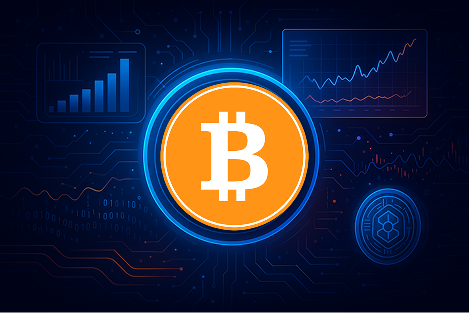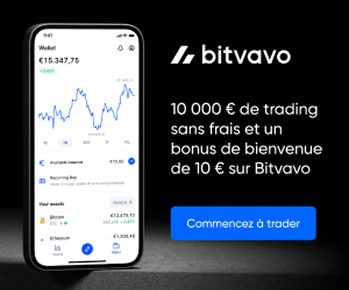The decentralized finance (DeFi) sector continues to revolutionize the global financial landscape. With rapid technological advancements and growing adoption, understanding the latest DeFi market trends is essential for investors, developers, and enthusiasts alike. This article offers a clear, data-driven overview of current and emerging trends shaping the DeFi ecosystem, analyzes the impact of regulatory and macroeconomic factors, and provides practical advice for stakeholders aiming to navigate this dynamic market.
What is DeFi? A Simple Overview
DeFi, or decentralized finance, refers to financial services built on blockchain technology that operate without traditional intermediaries like banks. These platforms enable peer-to-peer lending, borrowing, trading, and yield generation through smart contracts. Since its inception, DeFi has attracted significant interest for its potential to democratize finance, increase transparency, and reduce costs.
Current DeFi Market Trends
1. Explosive Growth and Market Expansion
The DeFi market growth over the past few years has been phenomenal. According to recent statistics, the total value locked (TVL) in DeFi protocols surpassed $50 billion in 2025, reflecting widespread adoption. This surge is driven by innovative applications such as decentralized exchanges (DEXs), lending platforms, and yield farming services. New users continue entering the space, attracted by high returns and financial autonomy.
2. Emergence of Layer 2 Solutions and Cross-Chain Protocols
Scalability remains a critical challenge in the DeFi space. To address this, Layer 2 technologies like Optimistic Rollups and zk-Rollups have gained traction. These solutions improve transaction speeds and reduce costs, making DeFi more accessible. Furthermore, cross-chain interoperability protocols enable assets to move seamlessly between blockchains, enhancing liquidity and user experience.
3. Focus on Security and Risk Management
As DeFi grows, so does the complexity and risk. Smart contract vulnerabilities, flash loan attacks, and rug pulls have prompted the community to prioritize security. Projects now invest heavily in audits, bug bounties, and decentralized insurance mechanisms. For newcomers, learning about crypto security best practices is vital to protect digital assets.
4. Increasing Regulatory Attention
Governments and regulators worldwide are closely monitoring DeFi developments. While the decentralized nature complicates enforcement, new regulations targeting anti-money laundering (AML), know-your-customer (KYC), and tax compliance are emerging. These regulatory changes may affect user participation and project development but also offer the potential for increased legitimacy and mainstream adoption.
5. Growing Institutional Involvement
Institutional investors are entering the DeFi market in increasing numbers, attracted by the sector’s growth potential and diversification benefits. Firms are exploring DeFi through venture capital investments, partnerships, and direct participation in protocols. This trend boosts market stability and drives innovation.
Emerging Technologies and Use Cases
DeFi Beyond Finance: NFTs and Gaming
DeFi technologies are expanding into non-financial sectors such as gaming and non-fungible tokens (NFTs). Play-to-earn games incorporate DeFi mechanics like staking and liquidity mining, creating new revenue streams for users. NFTs are also being used as collateral or governance tokens within DeFi protocols, blending creativity with finance.
Decentralized Identity and Privacy Solutions
User privacy and identity management are gaining importance in DeFi. Decentralized identity frameworks allow users to control their data and verify credentials without centralized intermediaries. These advancements promise to increase trust and compliance while preserving user sovereignty.
Key Statistics and Market Developments
- Total Value Locked (TVL): As of mid-2025, TVL in DeFi protocols reached approximately $55 billion, marking a 30% increase year-over-year.
- User Base: Over 5 million unique active wallets interact with DeFi platforms monthly.
- Top Protocols: Leading platforms include Uniswap, Aave, Compound, and Curve, collectively accounting for over 60% of the TVL.
- Token Performance: Governance tokens related to DeFi show mixed performance but maintain strong community engagement.
Impact of Macroeconomic Factors on DeFi
The global economic environment influences DeFi adoption and development. Inflationary pressures and low interest rates have made decentralized lending and yield farming attractive alternatives. Conversely, macroeconomic uncertainty can lead to volatility in crypto markets, affecting DeFi liquidity and user confidence.
Forecasts and Recommendations for Investors and Developers
What to Expect in 2025 and Beyond
- Continued innovation in Layer 2 scalability and cross-chain solutions.
- Enhanced regulatory clarity fostering institutional growth.
- Expansion of DeFi into new sectors such as insurance, real estate, and supply chain finance.
- Stronger emphasis on security and user education.
Advice for Investors
- Stay informed about trends in decentralized finance through reputable sources.
- Diversify holdings across established and emerging protocols.
- Prioritize projects with strong security audits and transparent governance.
Advice for Developers
- Focus on building interoperable, user-friendly, and secure platforms.
- Collaborate with regulatory bodies to ensure compliance.
- Innovate in areas such as privacy, identity, and new financial instruments.
Conclusion
The defi market trends of 2025 highlight a maturing ecosystem characterized by rapid growth, technological innovation, and increasing institutional involvement. While challenges such as regulatory pressures and security risks remain, the overall trajectory points toward broader adoption and diversification. Whether you are an investor or developer, staying abreast of these trends is crucial to leveraging the full potential of decentralized finance.
For those new to crypto investing, resources like our Cryptocurrency Price Tracker for Beginners: How to Start Monitoring the Market offer a great starting point. And to deepen your understanding of market dynamics, check out Top AI Crypto Projects 2025 which explores the intersection of AI and blockchain innovation.
















